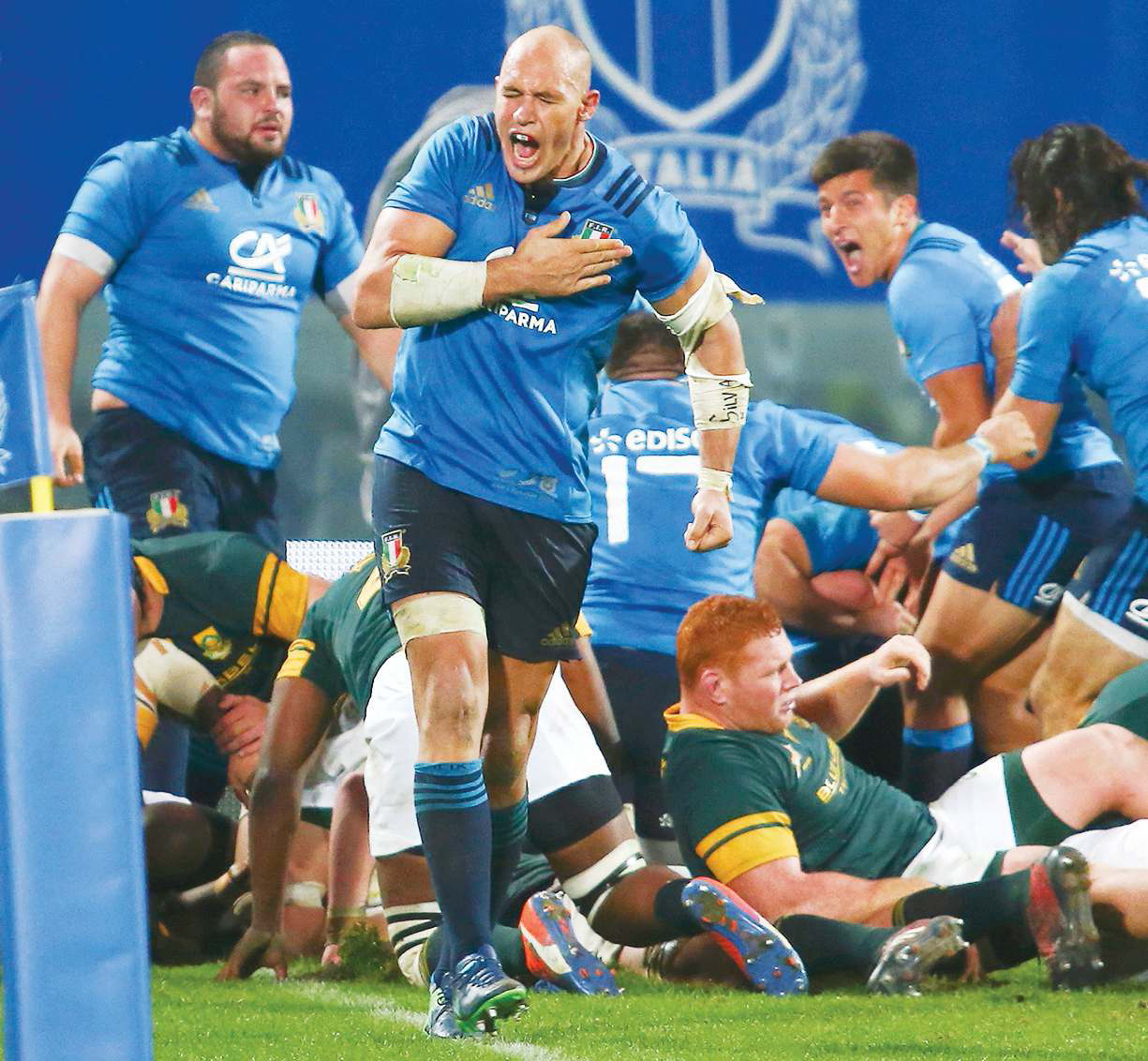Fight to the end and pray for some magic

Categories: Six Nations
Tags: Championship, Connacht, England, Italy, New Zealand, Premiership, Premium, Scotland, Six Nations, South Africa, Wales
Conor O’Shea tells Brendan Gallagher how he plans to take Italy to the next level
PREVIEW…
Italy v Wales
Today. Kick-off 2pm
Landmark victory: Italy overcome the odds to beat South Africa in the autumn
PICTURES: Getty Images
ITALY under Conor O’Shea have already got six Tests under their belts – three wins including an historic victory over South Africa and three defeats – but ultimately coach and players will be judged on how they perform in the Six Nations. That’s just the way it is and the scrutiny proper starts against Wales in Rome this after...
Continue reading...
Access all our premium content from as little as 14p per day!
Already a subscriber to our website? Login